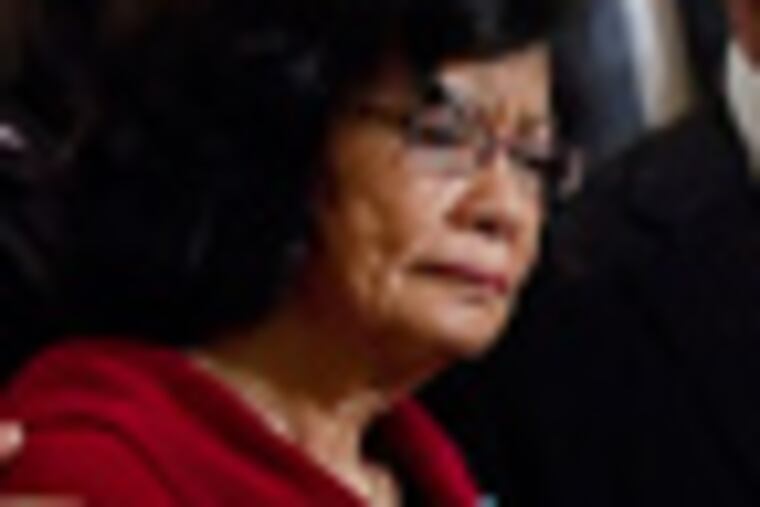Inquirer Editorial: Improve sex-abuse laws
The child-sex-assault scandal at Pennsylvania State University must lead to better legal safeguards in new suspected abuse cases. Equally important are reforms that would extend a measure of justice to long-ago sex-abuse victims now barred from the courts.

The child-sex-assault scandal at Pennsylvania State University must lead to better legal safeguards in new suspected abuse cases.
Equally important are reforms that would extend a measure of justice to long-ago sex-abuse victims now barred from the courts.
Given the encouraging show of bipartisan support for action this week by Harrisburg lawmakers, the scandal that toppled Penn State football coaching legend Joe Paterno - following the arrest of former assistant coach Jerry Sandusky - appears to be generating the momentum needed to tackle these changes.
In yet another hopeful sign, Gov. Corbett says he expects legislative action could be completed by the year's end.
Lawmakers have plenty to digest, with more than a dozen proposals before them aimed at ensuring that child molesters are exposed and stopped sooner.
There's little doubt that the current reporting requirements in suspected abuse cases should be tightened to require that authorities are alerted. At Penn State, it is alleged that Sandusky, who is charged with 40 counts of sexual abuse of young boys, was able to pursue additional victims because university officials, as part of a cover-up, failed to alert police as early as they could.
The best way to sort through the proposals on reporting requirements could be the formation of a joint task force backed by Corbett to study the state's child-abuse laws. That need not drag out the process indefinitely, but it could ensure that the deliberative approach the governor favors results in reporting rules that are both effective and workable.
With a long-standing proposal to open a two-year window for civil suits by abuse victims now prevented by the statute of limitations, though, the way forward is quite clear already.
As done in Delaware and California, the civil window proposed by State Rep. Michael McGeehan (D., Phila.) is needed to provide a day in court for victims whose abuse was hidden due to carefully orchestrated cover-ups, such as those alleged by grand juries that scrutinized the Catholic Archdiocese of Philadelphia.
As McGeehan noted, the Penn State scandal "explodes the idea that sex abuse is just a problem in Philadelphia, or of priests, or that window legislation targets the Catholic Church," whose bishops continue to fight such reforms.
Indeed, the Penn State case shows more than ever the need to elevate the safety of children above all other concerns.